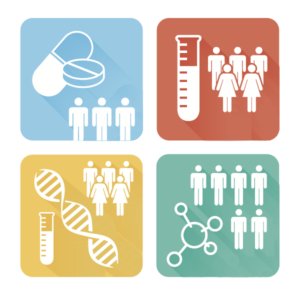Writing Edit Checks in Clinical Data Management

Our Subject Volunteers are the most important part of our Clinical Trials and without them, there is no data. Without good, quality data, there is no accurate statistical analysis. So, how do we ensure the data we collect are quality data that we can use in clinical trial data management.
At BioPharma Services, data is captured quicker with our newly launched EDC platform. Not only does this digital transformation expedite clinical trial timelines, but it allows us to program the most complex of edit checks. It is not just about verifying that the data within one form is logical; it is also about investigating data across multiple forms to ensure consistency. Not all platforms are built the same when verifying the latter.
Different types of edit checks
Univariate versus Multivariate Edit Checks:
The clinical research coordinator intends to enter 75 as a subject’s pulse rate, but inadvertently leaves the data field before pressing the “5”. Surely, there would be concern for someone with a heart of rate of 7 beats per minute. So, a univariate check fires and the coordinator can quickly correct the error. Suppose another colleague enters “ovarian cyst” on the Medical History form for a subject identified as male on the Demographics form. A multivariate check fires that will refer the user to the field for sex. Univariate edit checks evaluate data in a single field. Multivariate edit checks cross-check data inputted for two or more fields, whether within the same form or across multiple forms.
Standard versus Protocol-Specific Edit Checks:
The adverse event, reported for a subject, stops before it even starts. A standard edit check, to ensure stop dates are after start dates, for example, are applicable to all clinical studies. For critical data, such as dosing and adverse events, more intricate standard checks would cover possible scenarios occurring less frequently. Protocol-specific edit checks are vital to evaluating critical data points such as primary endpoints, as well as data related to unique protocol procedures. A clinical trial for a medication for prostate cancer requires that the patients be at least 50 years of age. A protocol-specific multivariate edit check, possibly on the eligibility form, verifies the patient’s sex and date of birth at time of consent.
Managing Critical Variables:
Even though most, if not all, the data collected in the clinical database is related to some aspect of the clinical trial’s conclusion, accurate reporting of, and thus cleaning of, critical data variables are more important than other data variables. A slight inaccuracy in a subject’s reported height will have less of an impact on statistical analysis than inaccuracies reported in blood pressure for a cardiovascular study. Inadequate verification of critical data can be detrimental to a study’s conclusions.
BioPharma Services Expert Data Managers
A strong set of edit checks is about balance. Imposing especially narrow ranges will raise flags for a lot of data that is considered valid. The clinic and Data Management teams then spend a large amount of time addressing and closing queries for otherwise valid data. Inversely, setting too few edit checks will result in unchecked data that will distort analysis.
Alternatively, manual review of data does not guarantee consistency, quality, and efficiency. Every edit check is programmatically independent of each other, yet they are all connected to ensure accuracy. This balance requires much thought to provide a quality database.
The right edit check also has the correct query text. Our Data Managers do not lead the Clinic to provide a specific answer. Clear texts state the error and why it is an error, which enables the clinic to determine the appropriate action. While our Data Managers see the logic used to generate the edit check, our Clinicians must understand the data issue from the query message alone.
Guidelines of clinical trial edit checks in clinical data management
Our clinics follow strict guidelines when collecting data, but, they do not end there. In fact, it is only the beginning of an intricate web of communication channels whereby cross-functional groups work together to ensure the correct checks are in place for the study data to be reported accurately. Our Data Management Team informs our clinic of the edit checks implemented for each protocol. Our Statisticians and Data Managers communicate closely to ensure the proper edit checks are in place. This cross-functional communication increases the efficiency of the overall clinical trial activities.
Communication is essential, but it is not enough. Automated edit checks in clinical trial data management ensure efficiency and quality when cleaning the data. Robust edit checks are vital to a superior database. The right edit checks are highly dependent on how one views the data and how one can foresee potential data issues. The more complex multivariate edit checks verify that the data is not just clean, but is also coherent. Critical thinking is key to writing effective edit checks that ultimately result in a clean and complete database.
The Statisticians depend on good data for their analysis, and thus depend on the Data Managers to set up and validate a database with the proper edit checks in place. The protocol-specific primary and secondary endpoints, identified by our Data Management and Biostatistics group, are validated by the carefully planned edit checks. The way the data is cleaned by Data Management can impact how the data is collected by the clinic. Conversely, how the data is collected in the Clinic can impact how it is verified in Data Management. The level of accuracy of the data will impact how the Statisticians analyze the data.
Why Choose BioPharma Services?
With the right EDC platforms, allowing for the most complex edit checks, BioPharma’s team of Subject-Matter Experts in Clinical Data Management and Biostatistics provides quality data more quickly to our Sponsors. Collaborating with various groups, our Data Management and Biostatistics team plays a vital role in the success of the clinical trial. The roles and tools used in backend services have changed drastically over the last few decades as we continue to embrace innovative technology and digitization.
A Data Manager’s goal in writing robust edit checks has remained unchanged over the years, which is to provide the cleanest quality data. Today, what has changed is the decreased time and the way we achieve that goal.
Find out why BioPharma might be the right partner for you! Learn more about BioPharma Services and the wide array of bioanalytical services we provide.
BioPharma Services, Inc., a Think Research Corporation and clinical trial services company, is a full-service Contract Clinical Research Organization (CRO) based in Toronto, Canada, specializing in Phase 1 clinical trials 1/2a and Bioequivalence clinical trials for international pharmaceutical companies worldwide. BioPharma has clinical facilities both in the USA and Canada with access to healthy volunteers and special populations.



